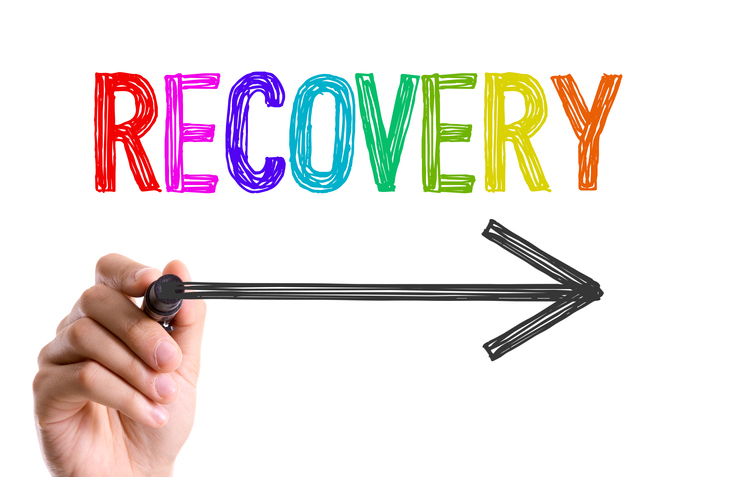What are you currently struggling with—is it an addiction? Or is it an unhelpful behavior, habit, or attitude? It seems we all have things God would like us to press into for more healing. Yet, working on an issue requires just that…work. It means we need to put in some sort of effort on our side and still ask for the Holy Spirit’s power, help and guidance.
In my last blog, I introduced a 5-part structure which could be helpful in tackling any issue you might want to work on in your life. We discussed the first two facets of the structure. The first part—“The Set Up” helps figuring out the logistics—how many days will I commit too? How much time will I devote daily? How will I connect with God during this time—prayer, scripture, spiritual reading?
The second facet—“The Get Up” is where we put action and legs to our commitments. There is a bit of journaling and reflection during this part. What are the unhelpful things to let go? It’s good to write down a list. We also can’t simply just get rid of something like a behavior or habit. We need to replace it with new motivations. So, there is also journaling during the time set aside about what it is you’d like to embrace—a helpful behavior or different attitude? Each day we read through these lists and bring a fresh commitment to these new ideas.
Tackling Bigger Issues
Last time, I used an example from my own experience in illustrating these first two facets—My crappy attitudes while driving. Things which appeared on my ”let go” list were feeling like I must police everyone else’s driving behavior and getting upset at situations which for the most part are rather petty. I also wanted to let go of the anger, road rage and the shaming faces and hand gestures that go along with the impatience. By applying this 5 part structure, I had some quick positive shifts with these driving issues. But what if you’re wanting to address bigger issues—like a lifelong sexual addiction or use of pornography? How might this structure prove helpful? Let’s explore our next 3 parts:
The Meet Up
So let’s say you’ve committed to 30 days of sexual sobriety and you’ve journaled your new motivations which you’ll revisit daily. Somewhere early in month it might be good to let a trusted someone into the process you’re undertaking. Yep, good ol’ fashioned accountability. First off, who is this trusted someone? Is it a close friend or a pastor or spiritual director? Is it counselor? Could it be a group—like Celebrate Recovery?
Why do we need to let someone into our process—especially if we’re embarrassed or feel shame around our sexual behavior? Roger, in a previous blog “Accountability: Getting and Giving Support,” explains the need well. “Sexual and relationship problems are only made worse the longer those involved continue to choose to be “unknown” to those around them. In order to heal, we must be known. In order to be known, we must be truthful and honest about the best and the worst parts of ourselves. This cannot be accomplished until the desire to be known is stronger than the fear of consequences.” For more helpful ideas on accountability, check out his excellent article.
The Jack Up (Relapse)
Uh oh! What happens during the 30 day commitment, when you blow it big time, fall flat on your face and relapse—perhaps going on a porn binge? What will you do in response? An important question to ask might be—what causes a relapse? Some reasons could be staying hidden rather than being known or “image management–letting people think you’re in a better space than you really are. Other reasons could be just being overconfident or cocky in your recovery or simple complaisance.
It’s good to have a well thought out plan when a relapse occurs. Another journaling opportunity could be defining what exactly constitutes a relapse for you given your goals? Second, who’s your go to–who will you call or who will offer a time for confession? This is another reason why it’s good to have someone on the journey with you.
The Make Up
Which brings us to our last part of the 5-facet structure—the effort to keep moving forward after blowing it big time. Two things which our good friend, Sy Rogers who was an author, speaker and pastor has said on multiple occasions have really stuck with me. 1. After you’ve sinned and gone against your own values and convictions, instead of running away from God in shame and embarrassment—run TOWARDS God. Why? 2. Because God would rather have you messy than not all.
Confession is God’s provision for us—it cleans us up and helps us move forward. Tell God what happened, even if it’s 70X7 and also include your “Meet Up” person. They can help you determine and sift through other options, like should you share this with others who are affected? Should any special amends be made? Continue to rely on the Holy Spirit’s work of transformation in overcoming sin (another reason for relapse might be doing it all in your own strength). Repentance is always a good place to land.
The structure once established is something you can return to daily and continue to return to after a relapse. You can also re-evaluate your structure—does something need to be let go of or added? You can also continue to restructure the structure while working on the same issue for several rounds even after the 30 day commitment is done. Hopefully putting a little bit of structure around an issue can deepen your relationship with God and others and promote the healing you desire.

Scott Kingry
Program Director
Although he holds a degree in graphic arts, he attributes his ministry qualifications to the “school of hard knocks.” God’s abundant grace continues to be the instrument of growth in his life, and he desires to be firmly grounded in the forgiveness and freedom of relationship with Jesus Christ.
Scott attends a Presbyterian Church.
Make a Difference in Someone's Life
If you enjoy reading WGA’s blogs and would like to show your support, please consider making a donation. Where Grace Abounds is a 501(c)3 non-profit organization. The majority of services, including support groups and discipleship counseling, are provided free of charge. Your financial gifts help to cover the costs associated with offering a free program to those who seek WGA’s services.

